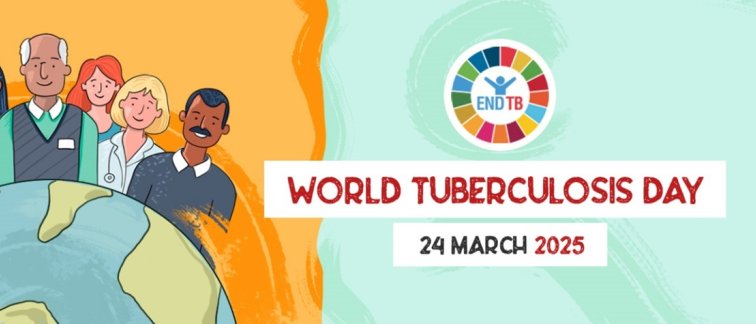Tuberculosis, an enduring threat
On 24 March 1882, German physician Robert Koch discovered Mycobacterium tuberculosis, the bacterium that causes tuberculosis (TB). Since 1982, this date has been declared World Tuberculosis Day, a day to draw global attention to this disease.
TB is a serious and often contagious bacterial infectious disease that spreads through the air. The disease mainly affects the lungs, but can also spread to other organs. Although TB is generally easily treatable with antibiotics, it remains one of the deadliest infectious diseases worldwide, with 1.5 million deaths annually. Health systems in high-endemic regions such as Southern Africa and Southeast Asia, face shortages of diagnostic resources, medication and well-trained staff. The recent harsh US cuts to health programmes in these regions threaten to further worsen this situation, with potentially devastating consequences for TB control. Without financial support, millions of people will not have access to proper TB care, which could lead to more infections, more deaths and further spread of resistant strains.
TB in the Netherlands: not a distant problem
TB is not a problem of the past, nor is it limited to distant countries. Last year, 768 people were diagnosed with TB in the Netherlands, an increase of 9% compared to previous years1. The recent large contact investigation within a company in South Holland2,3 in which dozens of infections occurred, underlines the importance of strong preventive care. Unfortunately, preventive measures are threatened by budget cuts by the Dutch government in public health. Moreover, there is currently also a shortage of TB medication in the Netherlands, which complicates optimal treatment, especially of prophylactic treatments. This increases the risk of further spread of TB.
Cooperation as the key to success
TB control requires a combined approach. In the Netherlands, public TB doctors and hospital specialists (pulmonologists and infectiologists) work closely together to ensure both individual patient care and public health. Scientific research also plays an important role in this.
Sabine Hermans, infectious diseases physician and TB coordinator at Amsterdam UMC, and Frouke Procee, tuberculosis control doctor at GGD Amsterdam and Utrecht, show how this collaboration works. They consult regularly on patient care, contact research and scientific research. Sabine is an experienced researcher in both the Netherlands and sub-Saharan Africa, while Frouke is taking her first steps in science as a PhD student at the AUMC.
Sabine: ‘TB does not stop at national borders. International cooperation and research are essential to get this disease under control.’
Frouke: ‘Every patient we treat early prevents further spread. Investing in prevention and care always pays off.’
It's time to act!
- Guarantee access to treatment - Shortages of TB medication threaten patients worldwide. Governments and health organisations must ensure a stable supply of antibiotics.
- Track TB infections early and treat them - More than a third of the world's population carries the bacteria without symptoms. Early intervention is essential.
- Break through stigma and protect funding - Fear and stigma of TB deters people from seeking help. Cuts in global TB funding jeopardise years of progress.
Only through collaboration, investment and universal access to care can we stop TB!
#WorldTBDay #EndTB#stopTB #WewantRifapentineinEurope
1 Tuberculose in Nederland neemt iets toe | RIVM en Kerncijfers tuberculose 2024 | RIVM
2 Geen nieuwe open tbc besmetting uit onderzoek bedrijf Oude-Tonge | ggdrotterdamrijnmond.nl
3 Tbc-gevallen bij maaltijdleverancier op Goeree-Overflakkee

